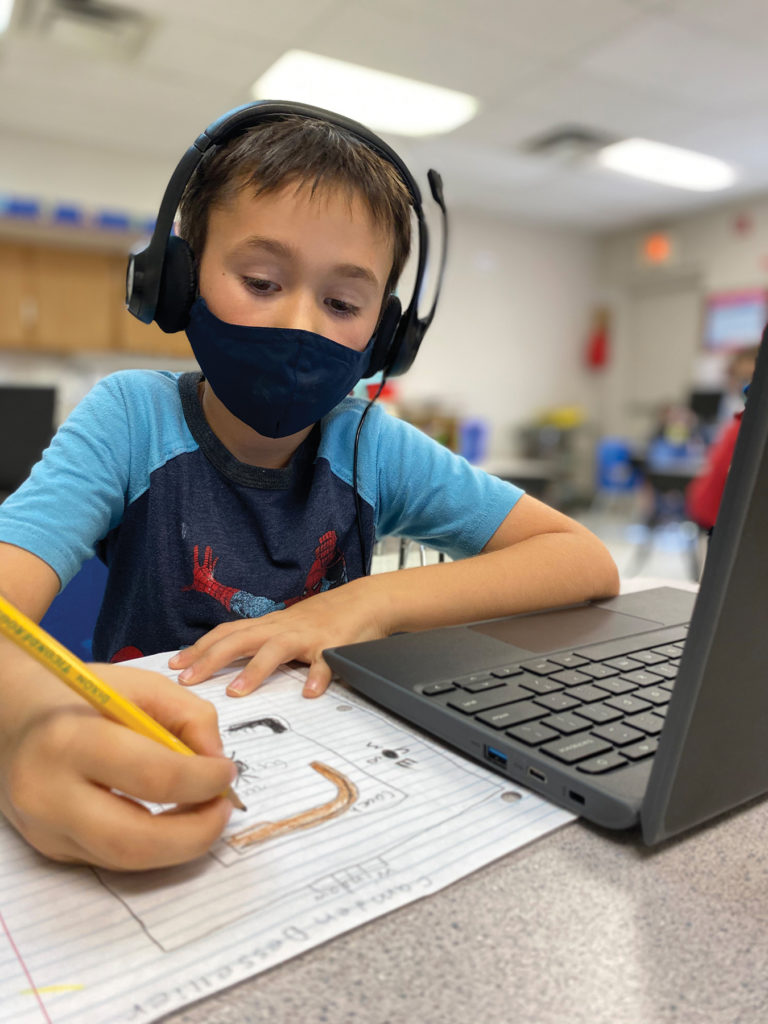Online learning is a reality, even for children as young as five years old. So how do working parents with young elementary-aged kids ensure that they are attending to the cognitive, physical, social and emotional well-being of their children?

There are no easy answers. These are unprecedented times and weathering the pandemic is no small feat. Among the plethora of issues parents face are the challenges with in-home, online schooling for maximizing learning, and fostering the development of lifelong skills.
Designating a place for online learning
Despite the difficult times, many families have done a remarkable job to bring a sense of new normalcy to their children’s routines. Parents are providing structure by helping organize the day’s schedule for their children along with designating a place in their homes to attend online schooling.
Designating a specific area of the house for school work sets the tone for students to get ready to go to school. They can dress up in their uniforms to create a school-like environment. In the designated area, students learn to follow the class rules and are respectful of the class expectations.
The day’s schedule must not only allow for regular routines for schooling and completion of work, but also for play and built-in breaks. During the break, students can eat their snacks and walk around. They can go outdoors to get some fresh air or participate in a mindfulness exercise. They can even ride their bikes.
During the rest of the day, schedule some available time for students to connect with their friends. Allowing students to chat and visit virtually with their friends will provide the opportunity to maintain social contacts they need.
Focusing on lifelong skills
Skills such as goal setting, decision-making, and problem solving are necessary for success not only during the school years, but throughout their lifetime. Dividing a larger task into smaller more manageable tasks, that take less time and are easily completed, help students build skills to achieve long-term goals.
Whatever the goal may be, a good strategy commonly used for goal achievement is to work backward from the identified goal.
Children learn to become self-directed, gain self-confidence, and enhance their self-esteem. They are learning not only how to achieve goals but also ways to problem solve, make decisions, and make this world a better place with one kind deed at a time.
For more information, please contact Self Development Academy, (480) 641-2640.

